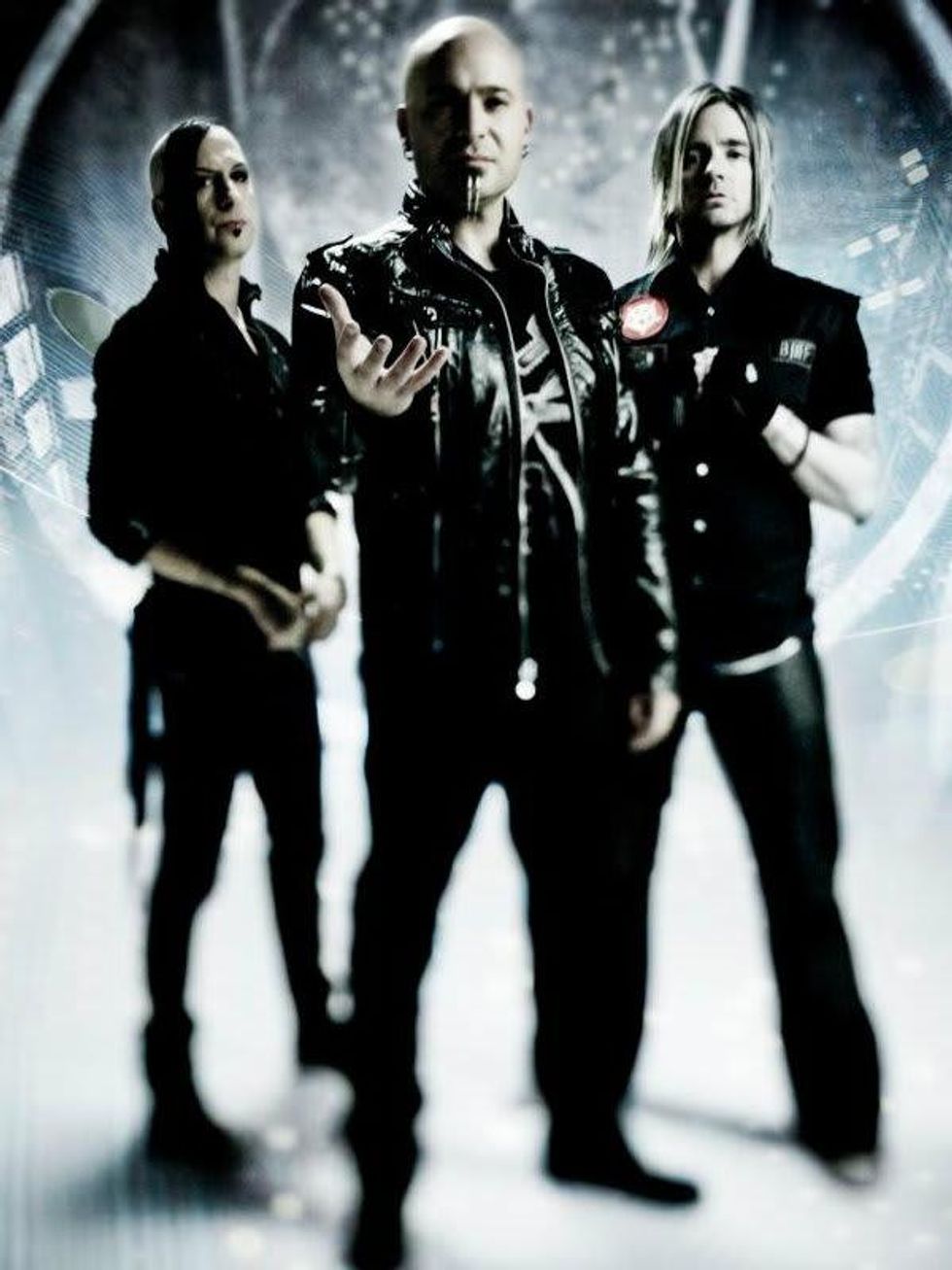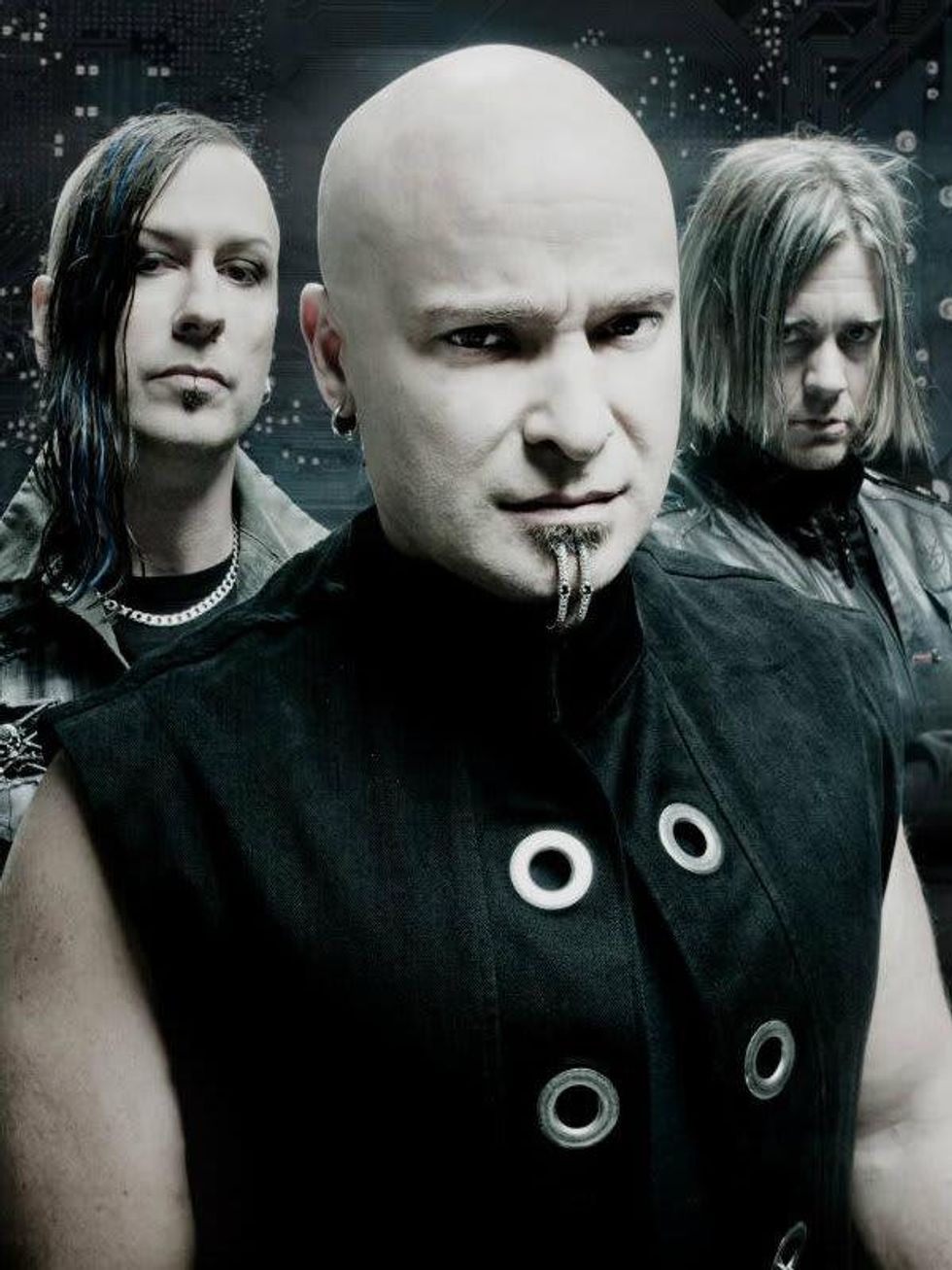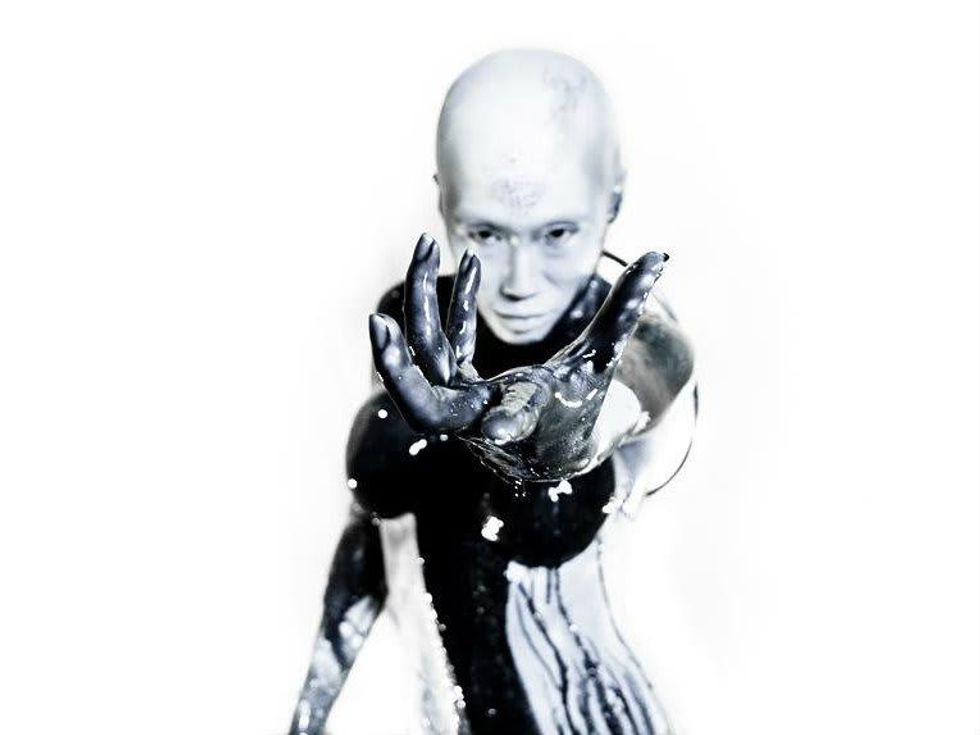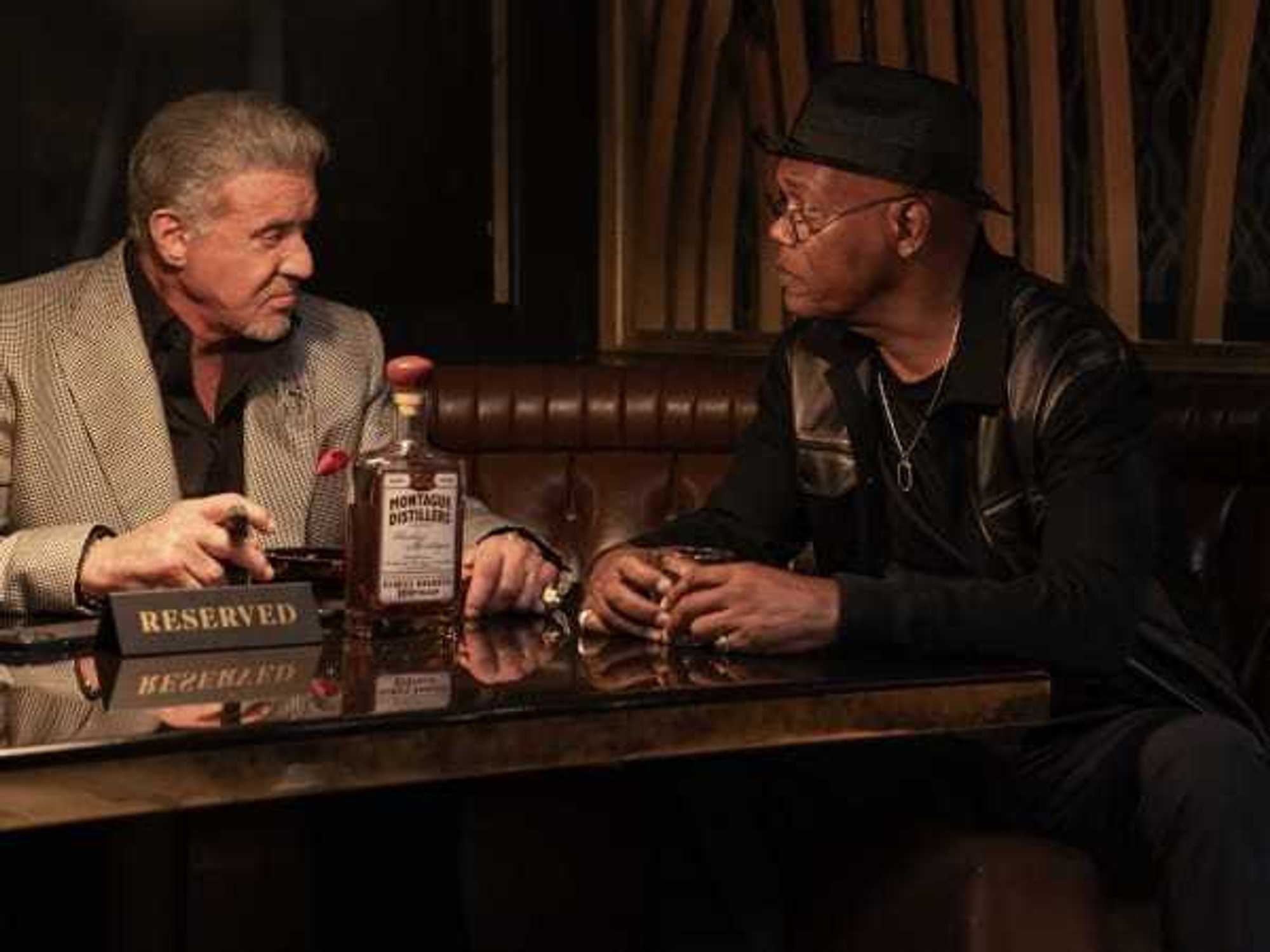Disturbing Musical Devices
Frontman Dave Draiman on new rock venture Device and the great Johnny Cash
For 19 years, Dave Draiman has been the face of Disturbed, one of the most successful hard rock bands of the past two decades. More important, however, Draiman has been the voice of the band.
Hit Parader magazine named him among its top 100 metal vocalists of all-time — for good reason. Draiman’s powerfully aggressive delivery is iconic among metal-heads around the world.
Instead of recording a follow-up to Disturbed’s last album, 2010’s Asylum, Draiman went in a different musical direction, effectively leaving Disturbed in the ominous state of “hiatus.” This new artistic direction in which chrome-domed Draiman has veered is very different, indeed.
“Johnny Cash was the musical rebel before there were musical rebels. Because he played country music, people underestimate his musical influence,” Draiman says.
Device, the project that sprung from Draiman’s lust for variety, spawned the recently self-titled full-length album featuring Disturbed-esque single “Vilify.” (See video above.) But don’t let a slight similarity between that song and his metal past fool you.
This album plays by no one’s rules of what hard rock should be. The record features guest contributions from such all-stars as Serj Tankian (System of a Down) and guitar wizard Tom Morello (Rage Against the Machine, Audioslave), among many other rock greats.
Device heads to Dallas April 23 for a show at Trees. We caught up with Draiman at home — on the date of the new record’s release, actually — and discussed Johnny Cash, expanding the horizons of metal and eating dinner with famous friends.
CultureMap: Let’s take a trip back in time. You showed off your house on MTV’s Cribs several years ago, and you displayed an autographed Johnny Cash picture of which you seemed to be really proud. What did Cash’s music mean to you?
Dave Draiman: Oh, wow [laughing]. Yes, I still have that picture. Johnny Cash was the musical rebel before there were musical rebels. The Man in Black was a badass. He’ll always be synonymous with the definition of badass for the duration of history.
He inspired so many artists. Because he played country music, people underestimate his musical influence, I think. He’s been a staple of mine since childhood. I love the timbre of his voice and the way he wore his heart on his sleeve, both lyrically and vocally. I still look at that picture from time to time, and when the world is beating me up a little, I remember I have that, and it lifts me back up most of the time.
CM: The new album from your new project, Device, is certainly different than your work with Disturbed. What difference do you hope Disturbed fans will catch onto the most?
DD: The differences in vocal tonality are radically different. The saturation of electronic music is radically different. The ambient and even danceable nature of these songs is radically different.
The closest song on this record to a Disturbed song is the single “Vilify,” mainly because of my identifiable, rhythmic, rapid-fire cadence and delivery. The adhering to rhythm is something I’ve loved even before my days in Disturbed. The projects before Disturbed had been more funk-influenced, and it’s just a part of who I am.
It was very fulfilling for me to sing so radically different on this album. I think people recognize my voice — thank God my voice is identifiable — but people, rightfully so, link my voice to Disturbed.
It’s similar to what Corey Taylor (Slipknot) goes through with his Stone Sour project, or what Maynard James Keenan (Tool) goes through with A Perfect Circle. Their voices are the same, but the musical directions are different.
CM: You mentioned this record has danceable elements. You don’t hear a lot of that in hard rock or metal.
DD: Hell, yeah. I wanted to bring more of the bounce.
CM: You also mentioned there are more ambient tones on the Device record than Disturbed records. You really seem to be exploring the boundaries of metal and hard rock on this record.
DD: I have all of the love in the world for metal and hard rock and heavy metal, but this project needed to be its own thing. I don’t know that you can call this record metal or hard rock, even. There are elements and aspects that fit in those realms, of course, but I wasn’t concerned about classifications for this record.
I was more concerned with writing strong songs with as much individuality as they could possibly have. I consciously wanted to go into directions I hadn’t gone into before, without a doubt.
CM: You were able to line up some really impressive collaborators for this record.
DD: I am very blessed to have a successful, talented and esteemed group of friends who have humbled me to no end with their amazing support and contributions. I’m overwhelmed with gratitude, when I think about it, and I can’t say enough about it.
CM: It’s a lot of rock royalty that we’re talking about here. How did it all come together?
DD: It was serendipity. The only guest performance we had planned was with Lizzy [Hale of Halestrom] for the remake of Lita Ford and Ozzy Osbourne’s “Close My Eyes Forever.” She and I have wanted to do that for years.
The record was already recorded and mixed before anyone else joined in. After spending a few days in LA and having dinner with a few friends, things began to happen, though.
Tom [Morello] and Serj [Tankian] and I have been friends for years. Often, when I make it to LA, we’ll make it a point to catch up. We’ve always talked about doing something together, whether it was for charity or a movie soundtrack or something like that.
With Device, there are no rules or preconceived notions of how things should be done, and the topic of having people join in [came up] over an amazing Lebanese-style dinner at Serj and his wife’s house. Tom came over, and we finalized what we would all do.
The next day, Glenn Hughes [Deep Purple, Black Sabbath], who is a good friend, invited me to his book-release party and performance. His abilities are staggering, and since I was now bringing in guests, I realized his voice would be perfect for “Through it All.” So he invited me to dinner too.
Geezer Butler [Black Sabbath] happened to be there too, and that night Geezer agreed and set aside time from the recording of the sessions for the new Black Sabbath record.
I was shocked and blown away. Within two days of catching up with friends, I suddenly had these legendary guests on the record. I’m just filled with gratitude for how this came together.




